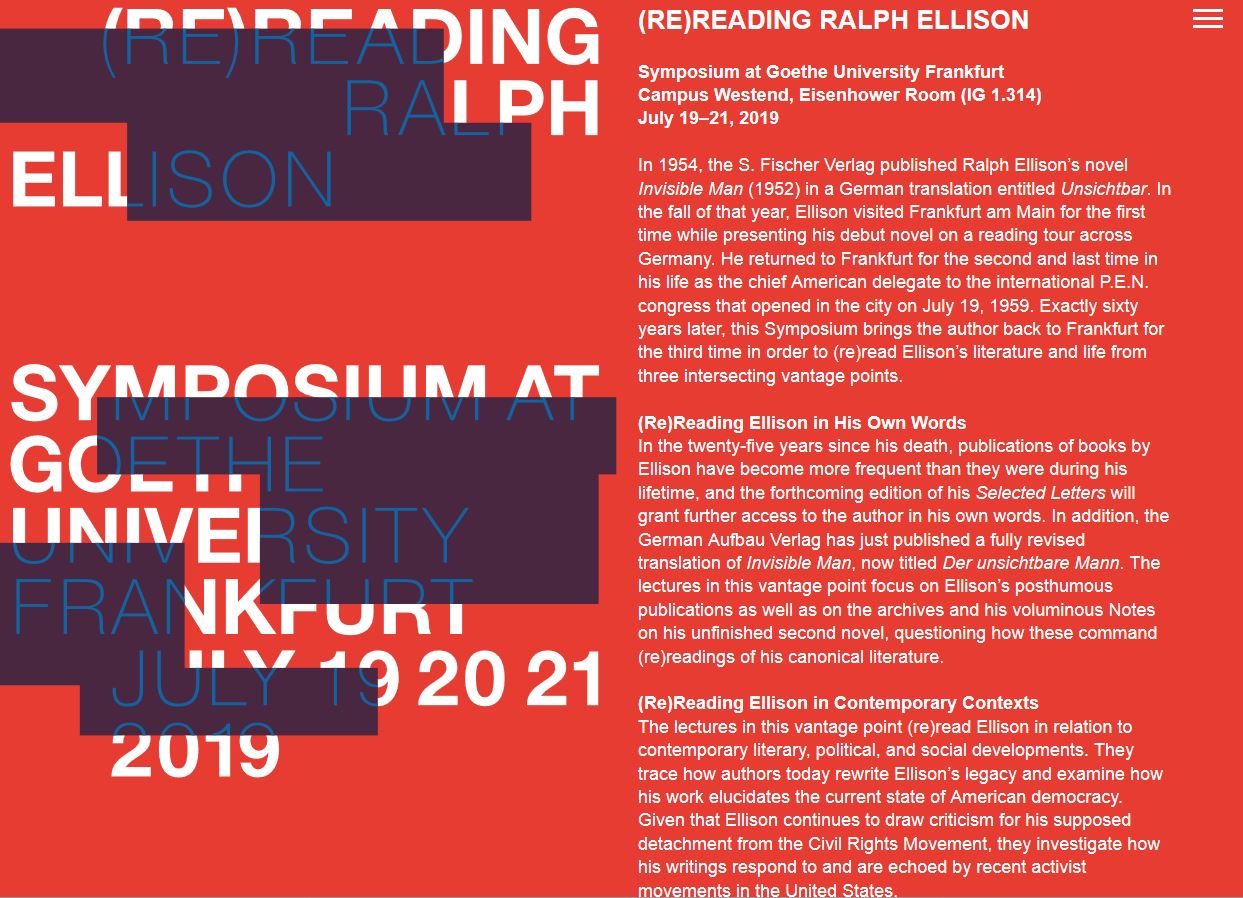Research
American Literature and the Transformation of Privacy
The DFG-funded research project “American Literature and the Transformation of Privacy” is integrated into Johannes Völz’s Heisenberg-Professorship for American Studies, Democracy, and Aesthetics. The transformations that practices and meanings of privacy are currently undergoing in the United States constitute a central component of contemporary changes in American democratic culture, as they affect the relationship between private and public spheres and the position of the individual vis-à-vis the state. This research project traces these transformations and their historical precursors through the lens of American literature. Historically, the careers of privacy and literature have been closely intertwined: The modern notion of privacy emerged alongside the genre of the novel and developments in literary techniques, in particular techniques for the representation of feelings and thoughts, shaped conceptions of the private. In view of this interdependence, this project investigates the changing functions of privacy in American democracy and the aesthetic dimensions of the private that have taken shape in American literature from the mid-nineteenth century to the present.
“American Literature and the Transformation of Privacy” consists of the following two intersecting projects:
1) Stephan Kuhl: “Privacy and Literary Studies: The Example of Emily Dickinson”
This postdoctoral project supplies the field of privacy studies with a literary-theoretical framework. The first sustained American literary studies of privacy emerged in the late 1970s in the context of the feminist critique of the gendered power imbalance inscribed into rigid distinctions between the private and the public. Since then, privacy studies developed into a broad and differentiated subfield within Americanist literary studies. So far, however, literary studies have borrowed their conceptions of the private from non-literary disciplines like sociology or political theory. Instead of taking a non-literary theory of privacy as a starting point for literary analysis, this project elaborates a literary theory of privacy. It does not examine representations of privacy in literature, but the formal and stylistic creation of literary or textual privacies. This elaboration of a literary-theoretical approach to the study of privacy fills a major void in the field of literary privacy studies. Furthermore, by bringing a literary-theoretical approach into the broader debate on privacy, the project raises awareness for the aesthetic dimensions of privacy even in non-literary contexts. The study takes Emily Dickinson’s poetry, her literary practice, and the history of her reception from the antebellum period to the present as the paradigmatic examples for its theoretical conceptualization. Through this threefold focus on Dickinson’s poetry, her practice, and her reception, the study bases its theory of literary privacy on the three categories that have historically stood at the center of literary studies: text, author, and reader.
2) Johannes Völz: “Always Already Lost: Privacy and Contemporary American Fiction”
For a description of this project, please see the homepage of Johannes Völz.
(Re)Reading Ralph Ellison

The Symposium "(Re)Reading Ralph Ellison" took place at Goethe University on July 19–21, 2019. For more information on the symposium, please visit the website:
https://rereadingralphellison.de/